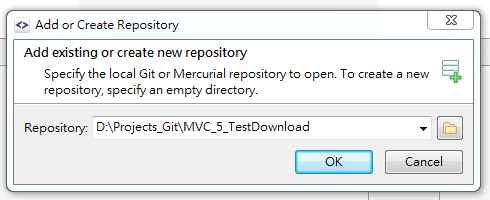
- #Setting up repository smartgit how to#
- #Setting up repository smartgit install#
- #Setting up repository smartgit update#
- #Setting up repository smartgit portable#
- #Setting up repository smartgit code#
The URL looks identical for me (client_id is a constant) and it A "Request Too Long" is definitely not expected > This call is not actually sent from SmartGit, but it's an URL which is However, when I tried to generate a token for a third Azure DevOps org where I'm an administrator via a Microsoft account that is NOT the one I'm logged into my workstation with, SmartGit returned a 401 Forbidden error. The SmartGit App Authorizations show up in the User Settings section of Azure DevOps. I recreated the accounts and was unable to reproduce their disappearing act after that). I was even able to give the Accounts more descriptive names in the SmartGit interface (one note: these accounts disappeared when I closed and then re-opened the Preferences dialog. I had zero luck setting up Azure DevOps as a hosting provider using Personal Access tokens, but clicking the Generate Token button and then using the token generated at worked! I was able to create two separate Azure DevOps hosting provider accounts for two Azure DevOps orgs that I authenticate with using the account that I'm currently logged into my Windows workstation with. However, I was able to spend a little time fooling around with it today. Unfortunately I'm swamped with work right now and won't have time to do the more extensive testing that Marc suggested until this weekend, and only then if the fates smile on me. It doesn't look like the logs are capturing the request headers. When I attempt to add the Hosting Provider, the app made a rest call (extracted from the logs) toĢm21s129 ( 07:39:56) INFO q.browserLauncher - Launching command='' in 'C:\Users\hrant'
#Setting up repository smartgit how to#
I found this stack overflow information on how to get a list of organizationsĪs suggested I downloaded the latest portable, and upgraded to the latest preview I think this is very critical in the implementation as the REST APIs are all based on the organization. Here it gets worse, a user logged in can be a member of multiple organizations, I do happen to be part of multiple organizations, with a single login, hence why I asked which organization is picked up. Frankly, Iĭo not yet understand the relationship between users (accounts?) and I guess the one(s) for which you are logged in.
#Setting up repository smartgit portable#
settings directory of the portable bundle (4) check logs/log.txt.0 yourself, maybe you will immediately see what might be wrong with the requests if so, please let me know if not, send me compressed logs/log.txt.0 to get rid of the entire.
#Setting up repository smartgit update#
(2) have a fresh setup and update to the latest build You can see all sent REST API requests in logs/log.txt.0 in the Settings directory. Now to start investigating these different problems: > If I enter one of the Organization names in the Account section, The SmartGit gets stuck and the only way out of it is to force kill it through task manager Frankly, I do not yet understand the relationship between users (accounts?) and organizations. > If I try to Generate Token instead, I get redirected to a browser and get an Authorization Code? however this is not clear as to what organization it is using? I guess we should rename it to "Organization". It's the same what will be used as prefix for your URLs. > What does the Account field represent? is it a label to name the account or is it actually my account email? Or is it the organization name?

#Setting up repository smartgit code#
I generally prefer using SmartGit over Visual Studio or VS Code for repository management. So Pull Request integration could be an opportunity for SmartGit.Īzure DevOps isn’t as popular as GitHub and maybe not even as popular as GitLab, but a lot of people do use it, so adding Azure DevOps support could help increase the SmartGit user base.

As far as I can tell, there’s one extension in beta that was written by somebody as a pastime, and Microsoft had previously provided extensions for functionality in VS and VS Code that supported pull requests but they’ve been or are being deprecated and have not yet been replaced. It's worth nothing that neither Visual Studio nor Visual Studio Code currently provide support for Azure DevOps pull requests.

As long as you do that you should have smooth sailing.Īs far as advanced features like pull request integration goes, I don't mind managing pull requests in Azure DevOps, but SmartGit integration would be nice.
#Setting up repository smartgit install#
When you install Git (on Windows at least), you have the option to install the Git Credential Manager as well. So explicit support of PATs by SmartGit probably isn’t a critical feature after all. I ultimately determined that it uses Personal Access Tokens via the Git Credential Manager. After some reflection I realized that I actually haven’t had authentication problems with SmartGit and Azure DevOps for quite a while, so I spent some time experimenting to figure out just how SmartGit is authenticating to my repos in Azure DevOps.


 0 kommentar(er)
0 kommentar(er)
